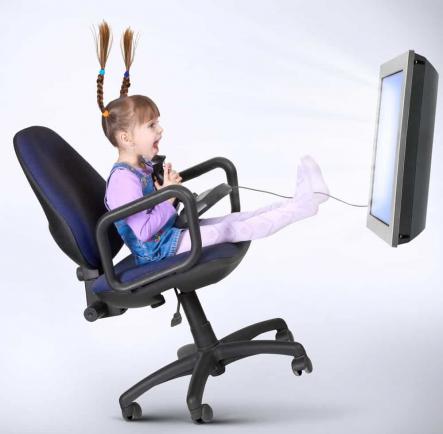
My young son walked in and slammed the door. Before I huffed and puffed about the slamming door, I looked into his face. Frustration, hurt and pain. He looked up at me, with tears in his eyes and voiced his frustration about our family rule on video game ratings. Once again he had ventured over to a friend's house for some fun, only to find them playing a video game he wasn't allowed to play. After explaining this to his friend and receiving the, "That's lame," answer he came home.
Now, I have to admit, part of me did the proud parent dance. My son had actually left a situation we had warned him about and came home, voluntarily. That aside, I could see he was hurting, and didn't fully understand why we have that rule. He looked at mom and dad and saw us sapping the fun out of his days.
You may find yourself in the same situation about video games. When kids want "really cool" games that are full of violence, soft pornography, language and social networking how do you set rules? What is safe? Where do you draw the line in the sand? And why should you?
Effects of video games on our children
Your children are born like little sponges; they absorb everything. Anyone who has had a toddler repeat a bad word her parents said in haste understands this.
An article published in the Journal of Adolescence in 2004 explains the effects of violent video games on our children. Children exposed to violent games:
-
Tend to be more aggressive.
-
Are more prone to confrontation with their teachers.
-
May engage in fights with their peers.
-
See a decline in school achievements.
Video games have a unique effect. Unlike other media, your child interacts with the game and has the power to choose the actions of characters. They get to pretend that they are white water rafting or stealing a car. Choose to have your children pretend to do good things.
Great athletes, like Olympic javelin throwers, visualize their throw before they ever step on the field. Positive visualization is a powerful training tool. For this same reason, negative thoughts and visualization can cause an athlete to choke or fail. When children play characters in video games, they are practicing. Are they practicing violence or learning a fun new skill like interactive jogging?
Soft pornography and language can have devastating effects on your child and family. For more information on the effects of pornography check out this great article by Gary and Joy Lundberg.
So, with all the scary information out there, how do you choose video games for your children?
Check the ratings and reviews
Use helpful online resources
Common Sense Media has a great website for reviewing games. They give parents consensus on age appropriateness, if the game teaches useful skills and how fun the game is.
Read reviews on online websites
If you are buying a game, you can look it up on retail stores' websites and normally find customer reviews. Reading these reviews can give you some good information. You may find a few parents that have complained that it was too hard for their children even though the game stated it was appropriate for their age.
Learn to understand the video game rating system
ESRB is the organization that rates video games. On their website they provide ratings for games and explain the reason for the ratings.
Take it for a test drive
Always test the game before your children play. Even if that means ruining the wrapping before Christmas. You wouldn't send them to school without meeting the teacher first. Don't sit them down to an online lesson without test driving it.
Last Christmas, my son begged us for a game. But after reading the online reviews I still had doubts about its appropriateness for my child. I found a game store in town that rented video games and rented it for an evening. After smuggling it home under cover of darkness, my husband and I spent an evening playing the game while the kids were asleep. This is a great way to test drive the games for your children and have your own fun.
Get a consensus
Your friends or neighbors may own video games your children are begging for. Ask around, or even ask to borrow it. Your friends know you, and you can ask more questions about the appropriateness of the game. Remember to thank them for their help and research.
The day my son returned home upset because he couldn't play video games with violent ratings, I sat down with him and explained why I wanted to protect him. He gained more understanding of our rules. I know this may not be our last talk, but he knows I love him and want the best for him.
Knowing that our home is a safe haven, and protected from the violence and pornography of the world allows my children to relax and feel safe. And helps them recognize dangers when they see them.
Make your home a safe haven for your children by only bringing safe media into it.

